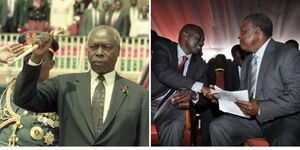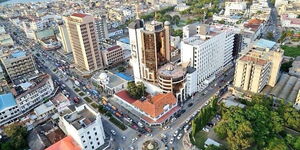The Law Society of Kenya (LSK) has proposed a change to the country's voting calendar, advocating for a two-day general election event.
LSK President Eric Theuri, in a statement, after making recommendations to the National Dialogue Committee (NADOC) on Tuesday, proposed the separation of the presidential election from other elective seats.
The rationale behind this proposal is to provide an opportunity for individuals who lose in the presidential election to run for other seats.
According to Theuri, this division of the electoral process will grant reprieve to presidential candidates who do not succeed and, in turn, contribute to greater stability in the country.
Theuri's proposal involves a multi-stage electoral process in Kenya.
Initially, Kenyans will cast their votes to select their preferred presidential candidate.
Once the president-elect is officially announced by the Independent Electoral and Boundaries Commission (IEBC), a subsequent 5-tier general election will be conducted.
During this second phase, Kenyan citizens will have the opportunity to vote for Members of County Assembly, Parliamentarians (including Constituency Representatives, Women Representatives, and Senators), and Governors.
Notably, candidates who did not succeed in the presidential election will still be eligible to compete for these other five elective positions.
If NADOC adopts LSK's recommendations, the proposal will be forwarded to Kenya Kwanza and Azimio principals for consideration.
Should President William Ruto and Azimio Leader Raila Odinga endorse the recommendations, the document will be sent to Parliament for debate.
LSK is not the only party that has proposed changes to Kenya's election playbook. Other politicians have also toyed with the idea.
Kibwezi West MP Mwengi Mutuse in his recommendations to NADOC has asked the Elections Act to be amended to allow presidential candidates to vie for parliamentary seats.
According to Mutuse, this will enable the second best candidate to assume the position of Minority Leader in the National Assembly negating the need for creation of an Office for the Leader of Opposition.
Additionally, Nandi Senator Samson Cherargei has proposed a constitutional amendment to extend the tenure of a president to 7 years up from the current 5 years.












